
Coldover Syrup
Manufacturer
Brinton Pharmaceuticals Pvt Ltd
Salt Composition
Chlorpheniramine Maleate (2mg/5ml) + Phenylephrine (5mg/5ml)
Key Information
Short Description
Coldover Syrup is a medicine used in symptomatic treatment of common cold in children, providing quick relief from common cold symptoms such as runny nose, stuffy nose, and sneezing.
Dosage Form
Syrup
Introduction
Coldover Syrup is a medicine used in symptomatic treatment of common cold in children. It provides quick relief from common cold symptoms such as runny nose, stuffy nose, and sneezing.
Directions for Use
Take this medicine in the dose and duration as advised by your doctor. Check the label for directions before use. Measure it with a measuring cup and take it by mouth. Shake well before use. Coldover Syrup may be taken with or without food but it is better to take it at a fixed time.
How it works
Chlorpheniramine Maleate is an antiallergic which relieves allergy symptoms like runny nose, watery eyes and sneezing. Phenylephrine is a decongestant which narrows the small blood vessels providing relief from congestion or stuffiness in the nose.
Quick Tips
Take it as per the dose and duration prescribed by your doctor. It may cause dizziness and sleepiness. Don't drive or do anything that requires mental focus until you know how it affects you. Avoid consuming alcohol when taking Coldover Syrup as it may cause excessive drowsiness. Inform your doctor if you are pregnant or planning to conceive or breastfeeding.
Related Medicines
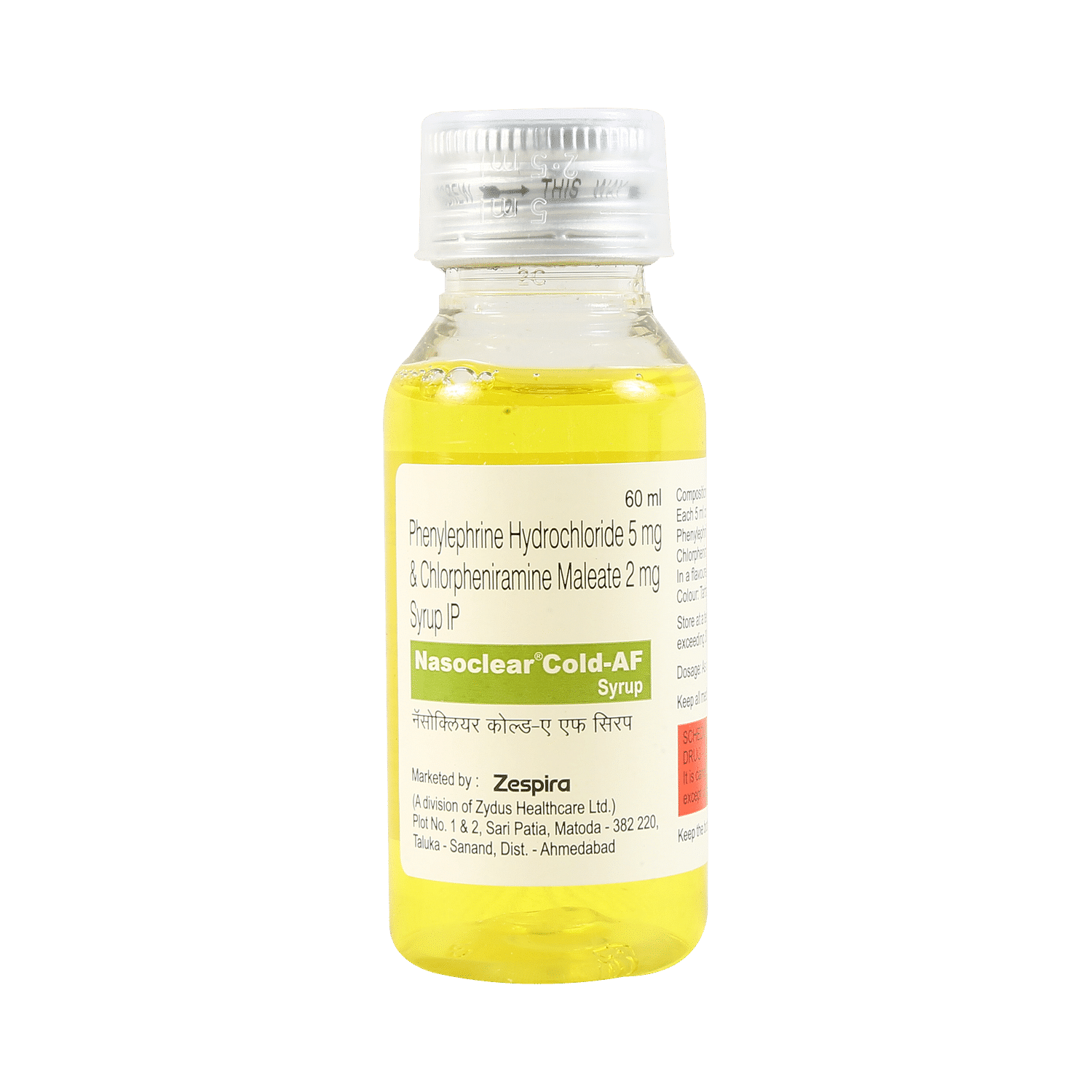
Nasoclear Cold-AF Syrup

Coriminic Syrup Orange
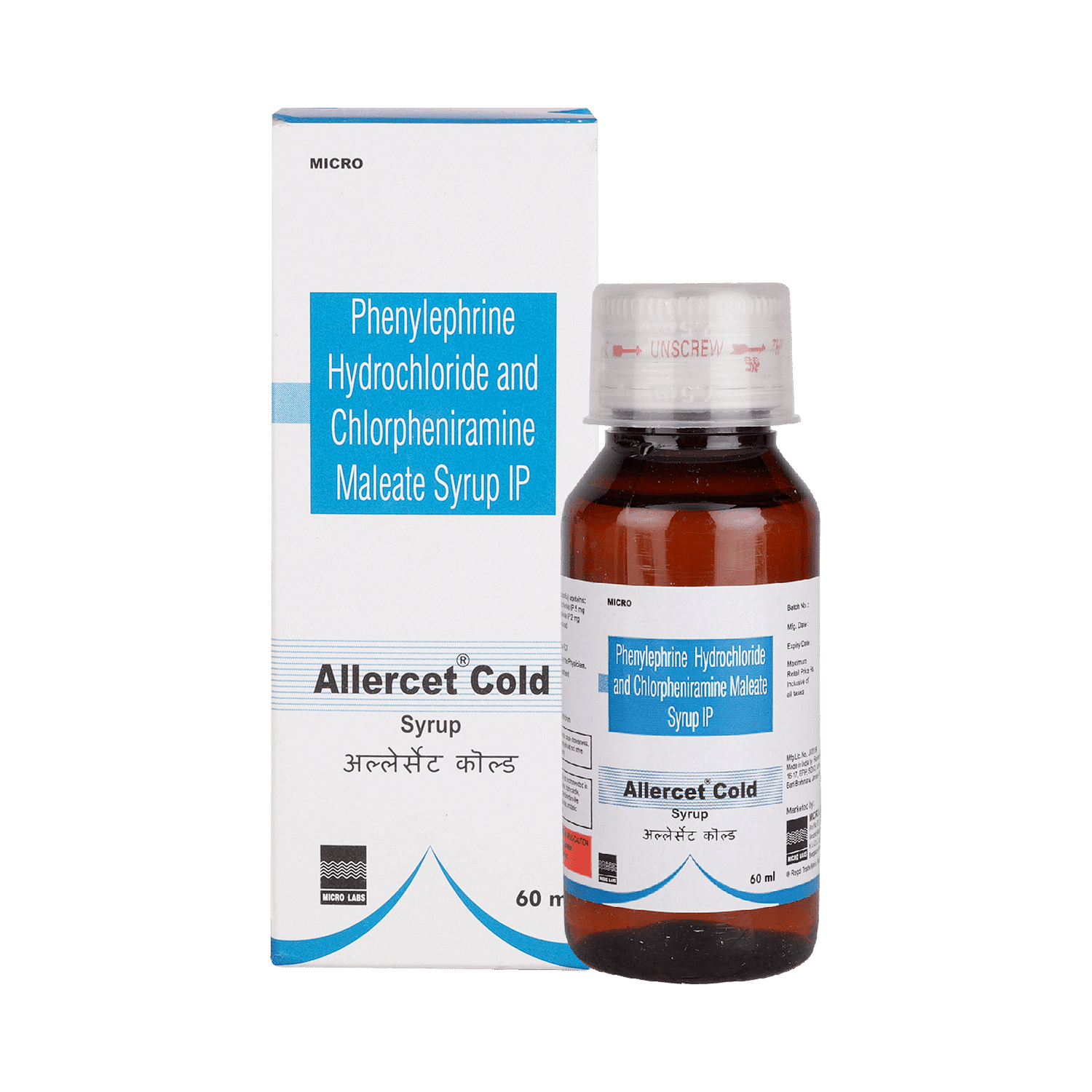
Allercet Cold Syrup
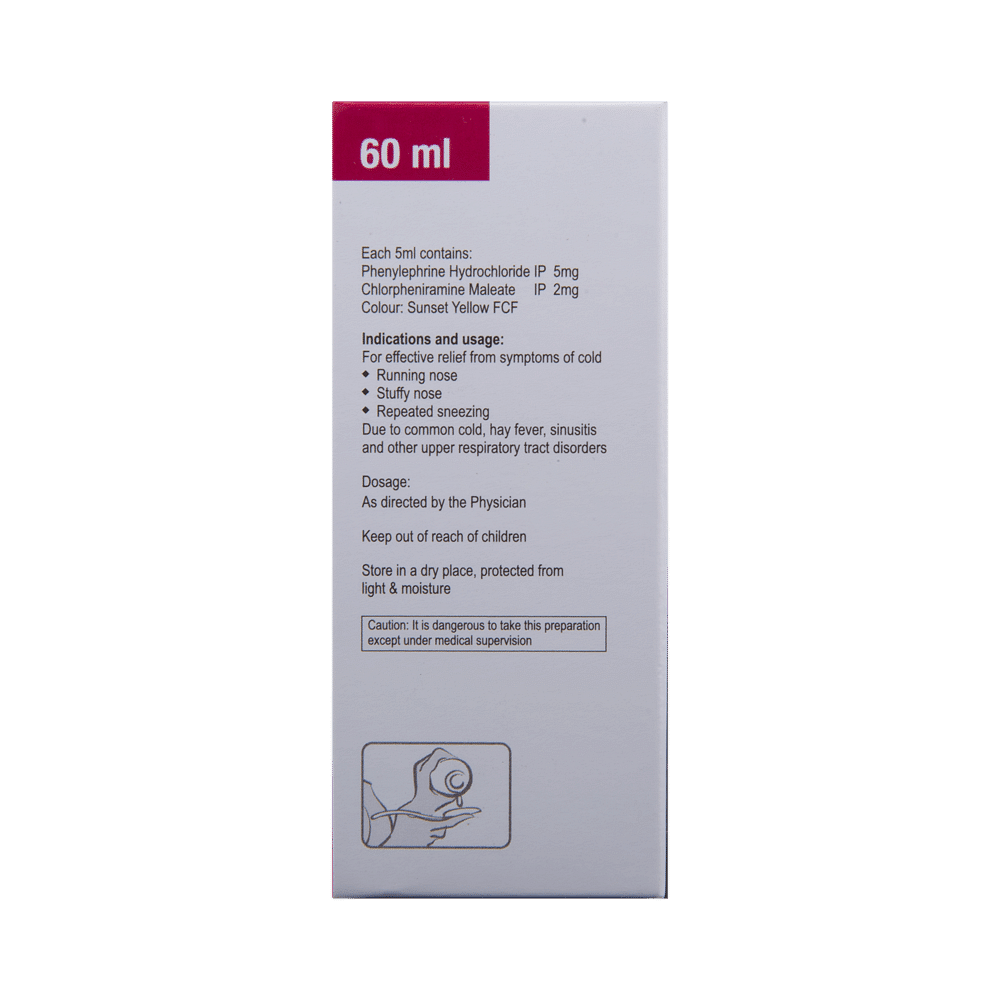
Solvin Cold AF Syrup
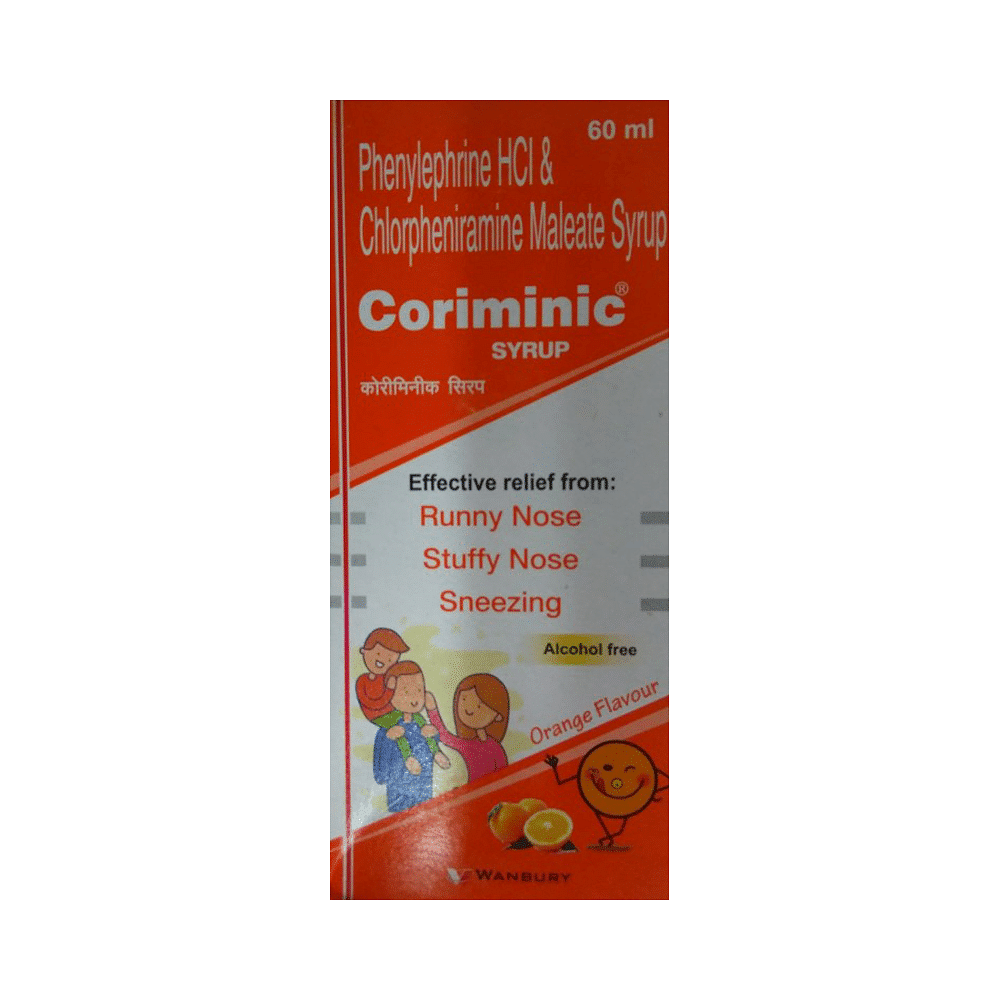
Coriminic Syrup
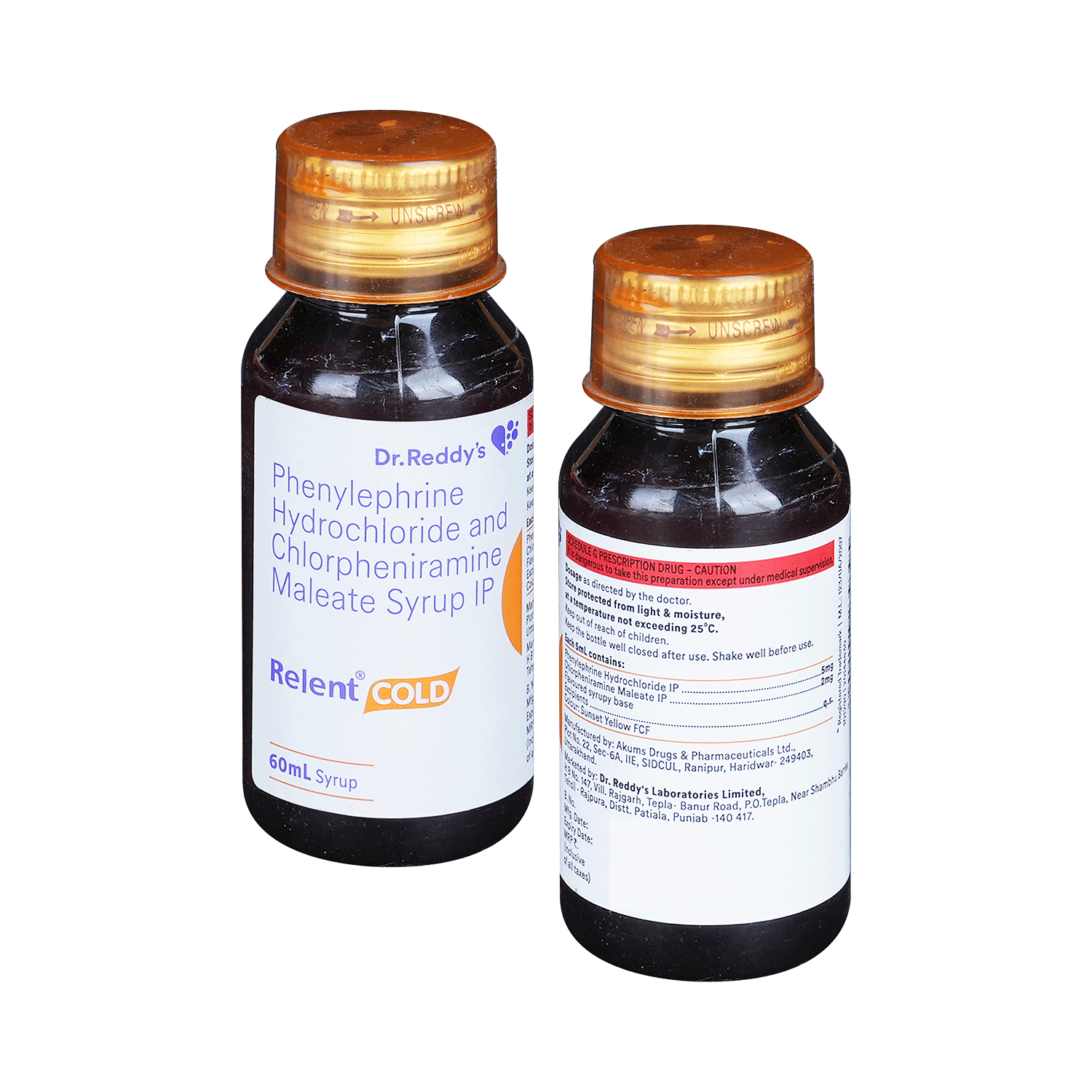
Relent Cold Syrup

Sinarest-AF New Syrup

Entimin Syrup
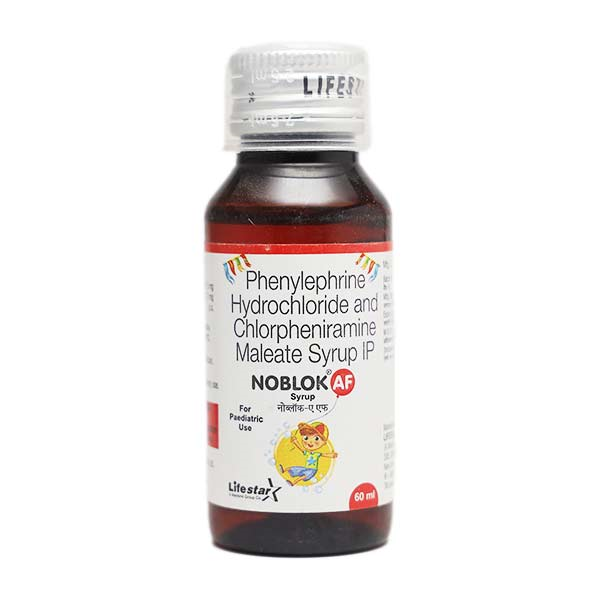
Noblok-AF Syrup
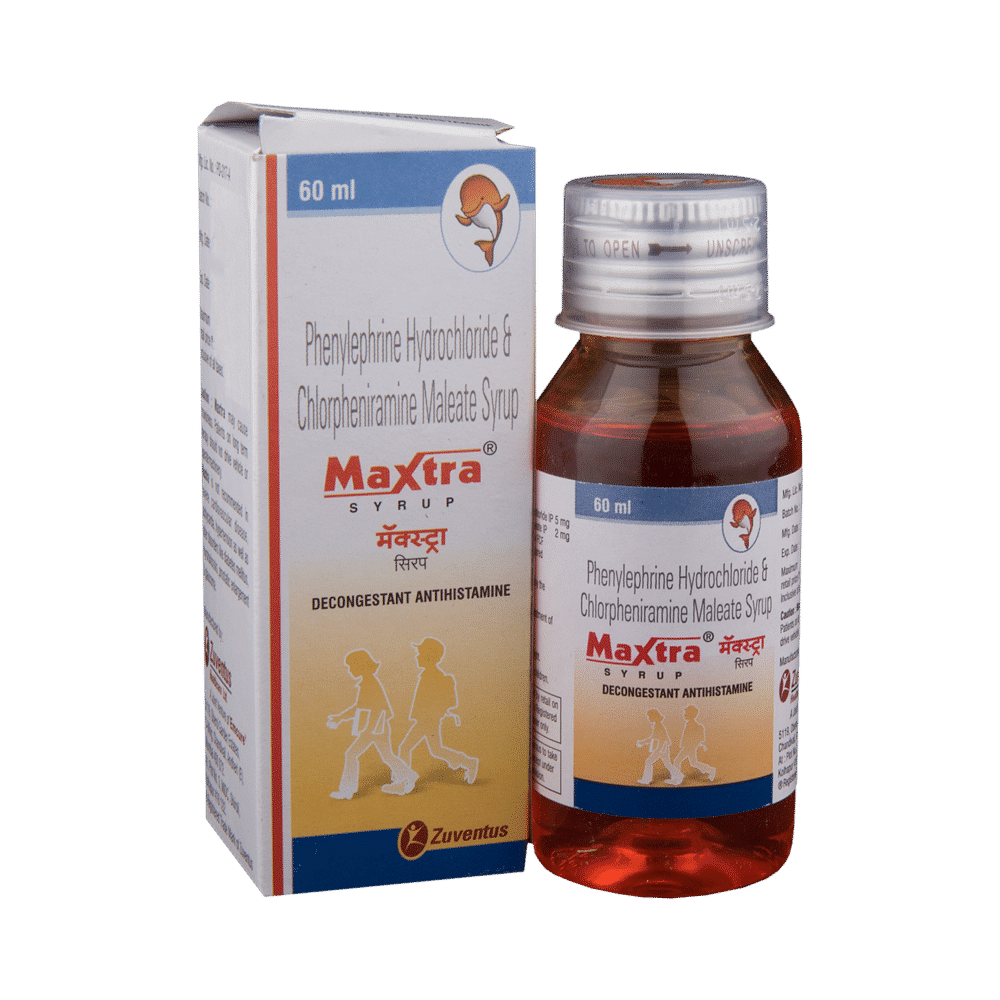
Maxtra Syrup
Frequently asked questions
What is Coldover Syrup?
Coldover Syrup is a combination of two medicines that provide relief from cold symptoms. It includes Chlorpheniramine, an antihistamine that alleviates allergy symptoms such as runny nose, watery eyes, and sneezing. Additionally, it contains Phenylephrine, a decongestant that narrows small blood vessels to relieve congestion or stuffiness in the nasal passages.
Is it safe to use Coldover Syrup?
Coldover Syrup is generally safe for most patients when taken as directed by their doctor. However, some individuals may experience common side effects such as nausea, vomiting, headache, dizziness, and other less frequent side effects. If you encounter any problems while taking this medication, it's crucial to inform your healthcare provider promptly.
Can the use of Coldover Syrup cause nausea or vomiting?
Yes, some individuals may experience nausea and vomiting after using Coldover Syrup. Consuming this syrup with milk, food, or antacids can potentially prevent nausea. Avoid consuming fatty or fried foods while taking this medication. In case of vomiting, it's essential to drink small amounts of water or other fluids frequently to avoid dehydration. Seek guidance from your doctor if the vomiting persists.
Can the use of Coldover Syrup cause sleepiness or dizziness?
Yes, drowsiness is a common side effect of Coldover Syrup. Driving, operating heavy machinery, and any other activity that demands full attention should be postponed until your healthcare provider has given you the all-clear. Moreover, avoid consuming alcohol or other cough and cold medications. Additionally, refrain from taking sleeping pills while using Coldover Syrup as this could increase drowsiness.
Can I take a higher than the recommended dose of this medicine?
No, exceeding the recommended dosage of Coldover Syrup can lead to potential side effects due to overdose. It is crucial not to start, stop, or alter your medication's dosage without consulting your doctor.
Are there any specific contraindications associated with the use of Coldover Syrup?
It is important to inform your healthcare provider about all relevant medical conditions before taking Coldover Syrup. These include known allergies, heart disease, high blood pressure, hyperthyroidism, glaucoma, and enlarged prostate (difficulty urinating).
What is the recommended storage condition for Coldover Syrup?
Store Coldover Syrup in its original container or packaging tightly closed. Always follow the instructions on the label regarding proper storage. Dispose of unused medicine properly, avoiding its consumption by pets, children, and other people.
What is Coldover Syrup?
Coldover Syrup contains Chlorpheniramine, an antihistamine, and Phenylephrine, a decongestant. These ingredients work together to provide relief from cold symptoms such as runny nose, watery eyes, and sneezing. It provides symptomatic relief by targeting the allergic reaction or congestion caused by colds.
Is it safe to use Coldover Syrup long-term?
The duration of using Coldover Syrup for short-term symptom management is generally considered appropriate when directed by a doctor. Consult with your healthcare provider regarding any potential long-term effects and specific medical circumstances.
How should I use Coldover Syrup to minimize side effects?
Always follow the dosage instructions provided on the medication label. Take the medicine as directed by your healthcare provider. If you experience any unusual or persistent side effects, immediately inform your doctor.


